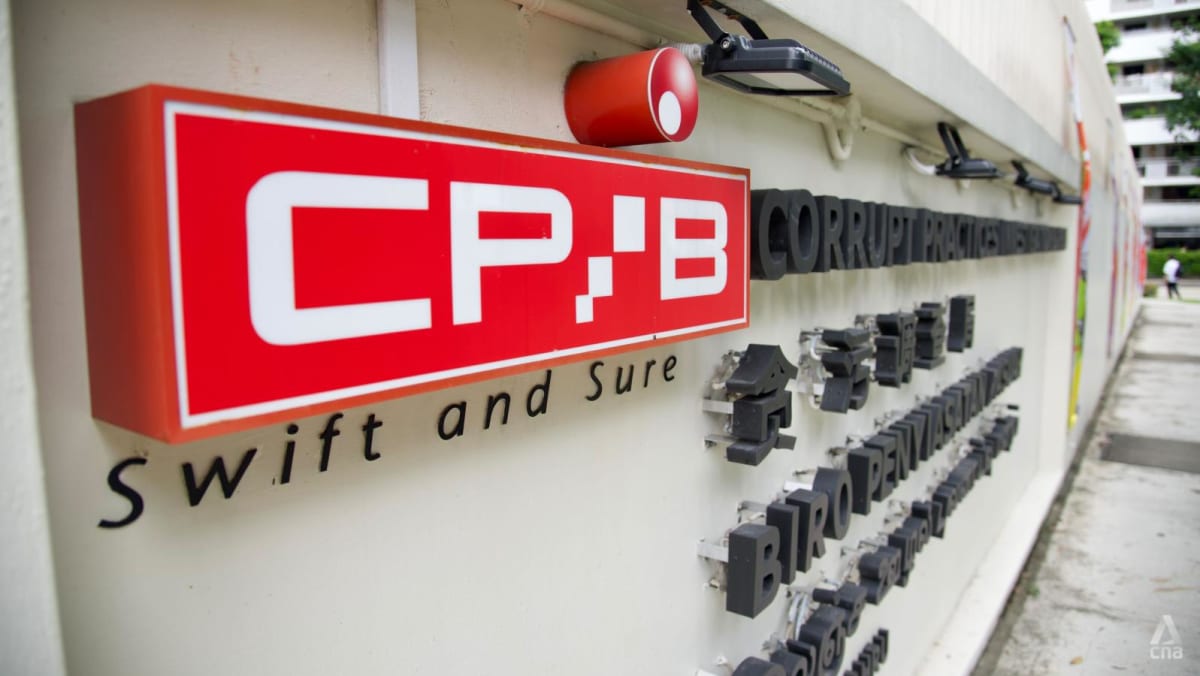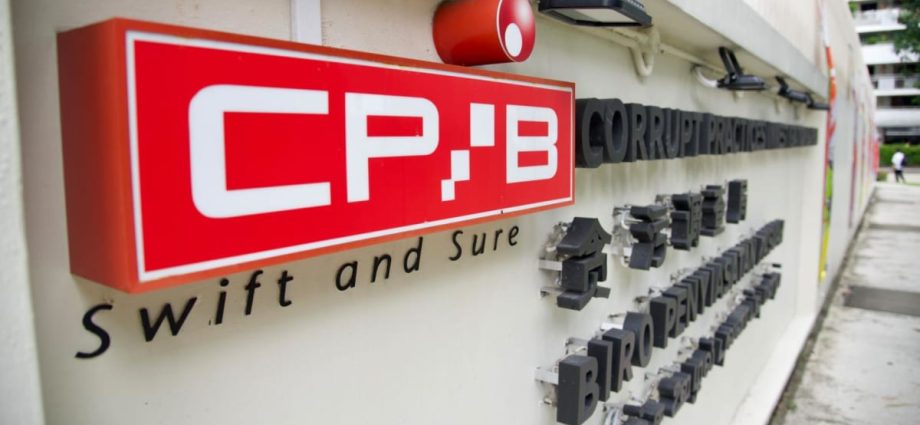
CPIB DIRECTOR HAS 30 YEARS IN PUBLIC SERVICE
Mr Denis Tang currently heads CPIB. He was appointed director in October 2018 and has served in several positions within the Home Team, with his last appointment being deputy commissioner of operations at the Immigration and Checkpoints Authority.
He joined the Singapore Police Force in 1982 upon receiving a local merit scholarship. He then studied economics at the National University of Singapore before returning to the police in November 1986.
He was conferred the Public Administration Medal (Bronze) in 1997, the Long Service Medal in 2017 and the Civil Service Long Service Award (35 years) in 2020.
In 2019, Mr Tang gave a speech at the 8th Conference of States Parties to the United Nations Convention Against Corruption, where he spoke about how CPIB uses “state-of-the-art technology and new methods of operation” in its work.
NOTABLE CPIB CASES
1975:
Minister of State for the Environment Wee Toon Boon was charged with corruption involving a sum of S$840,000.
He had used his ministerial status to make representation to civil servants on behalf of a property developer. In return, he was given rewards like a bungalow and free air tickets for his family.
He was convicted following a trial and sentenced to 18 months’ imprisonment. He also had to pay a financial penalty of about S$7,000.
1979:
CPIB launched an investigation into Member of Parliament Phey Yew Kok, who was also chairman of the National Trades Union Congress and general secretary of three trade unions.
He had misappropriated more than S$350,000, mostly from two of the unions, and instigated an accountant to provide false information to a CPIB officer.
Phey was charged in court but fled the country. After more than three decades on the run in Thailand, where he worked odd jobs, he turned himself in at the Singapore Embassy in Bangkok on June 2015.
In January 2016, he was sentenced to five years’ jail after pleading guilty to a dozen criminal charges that included criminal breach of trust.
1986:
Mr Evan Yeo, then-director of CPIB, approached Mr Lee Kuan Yew on Nov 21, 1986, regarding a complaint of corruption against Minister for National Development Teh Cheang Wan.
Teh was accused of accepting bribes totalling S$1 million in 1981 and 1982, in return for helping two property developers to retain and acquire pieces of land for development.
In a subsequent parliamentary speech, Mr Lee said he initially asked for investigations to be discreet because the “news would spread like wildlife” if the public knew CPIB was probing “so prominent a minister as that for National Development”.
About a week later, Mr Yeo gave Mr Lee a summary of the evidence gathered and asked for permission for an open investigation.
Satisfied that there were sufficient grounds to do so, the Prime Minister approved open investigations. CPIB then interrogated Teh for the first time on Dec 2.
Mr Lee asked the Cabinet secretary to ask Teh to take a leave of absence until Dec 31. Investigations would have been completed by then, and the Attorney-General would have decided whether or not to prosecute him.
On Dec 14, Teh died by suicide in his home. In a letter addressed to Mr Lee, he wrote: “I have been feeling very sad and depressed for the last two weeks.
“I feel responsible for the occurrence of this unfortunate incident and I feel I should accept full responsibility. As an honourable oriental gentleman, I feel it is only right that I should pay the highest penalty for my mistake.”
1994:
CPIB opened investigations against Choy Hon Tim, former deputy chief executive of operations at national water agency PUB.
The following year, he was sentenced to 14 years’ jail for criminal conspiracy and accepting bribes totalling around S$13.85 million from a businessman who was once a PUB clerk.
The total amount of bribes that Choy took remains the largest to date in a single case in Singapore’s history.
2012:
CPIB levied sex-for-contracts corruption charges against ex-Central Narcotics Bureau chief Ng Boon Gay and former Singapore Civil Defence Force commissioner Peter Lim.
Mr Ng was accused of obtaining sexual gratification from a female employee of two IT vendors seeking government contracts. He was eventually acquitted of all charges.
As for Lim, he was convicted and sentenced to six months’ jail in 2013. He had obtained sexual gratification from three women in exchange for showing favour to their companies for IT-related tenders.
2015:
Wong Chee Meng, the former general manager of Ang Mo Kio Town Council, was hauled to court for accepting more than S$86,000 in bribes from a company director, Chia Sin Lan.
In return for the bribes, Chia’s two companies were awarded more town council projects. Chia also took Wong to KTV lounges, massage parlours and restaurants to curry favour with him.
Both were convicted in 2018. Upon appeal in 2020, Wong was sentenced to 39 months’ jail, while Chia was given 33 months’ jail.

